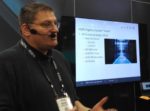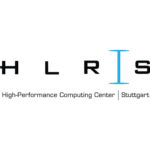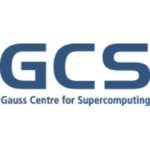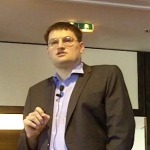Today the Gauss Centre for Supercomputing in Germany announced the appointment of Prof. Dr. Dieter Kranzlmüller as its new Chair of the Board of Directors. “As we advance towards the exascale threshold of computing and an era of unprecedented discovery and insights driven by the integration of modeling and simulation, data analytics and artificial intelligence, GCS stands ready to provide the basis and the catalyst of innovation–the hardware, software ecosystem, experience and expertise–needed to boost scientific and industrial breakthroughs.”
Mellanox Powers New Hawk Supercomputer at HLRS with 200 Gigabit HDR InfiniBand
Today Mellanox announced that its 200 Gigabit HDR InfiniBand solutions were selected to accelerate a world-leading supercomputer at HLRS in Germany. The 5000-node supercomputer named “Hawk” will be built in 2019 and provide 24 petaFLOPs of compute performance. By utilizing the InfiniBand fast data throughput and the smart In-Network Computing acceleration engines, HLRS users will be able to achieve the highest HPC and AI application performance, scalability and efficiency.
HPE to Build 24 Petaflop Supercomputer with 64-Core AMD EPYC Processors for HLRS
HPE is now under contract to build and install a new AMD-powered supercomputer at HLRS in Germany. Called “Hawk, the new computing system will be 3.5 times faster than the existing HLRS supercomputer, Hazel Hen, and will be the world’s fastest supercomputer for industrial production. Hawk will support academic research and industry — particularly in engineering-related fields — to advance applications for energy, climate, mobility, and health. “And if you are wondering about the name, well, Hawks eat Hazel Hens.”
Video: Quo vadis HPC – Facing the Future
In this talk from Computing Systems Week in Heraklion, Bastian Koller from the University of Stuttgart / HLRS asks whether HPC has come to a dead-end in Europe. He argues that real-life uses for applications are more important than having computing power for the sake of it, and suggests directions to take. “HPC and HPC Ecosystems are quickly evolving. Whereas the HPC community has a long history and is partially seen as as “dinosaur”, we see a lot of developments around HPC, namely HPDA, Deep Learning, Machine Learning etc. This keynote will have a glance on where we are today, technological trends and show with examples, how the communities around applications need to be supported to get ready for the new Era of High Performance Star (HP*), which covers the next evolution step of supercomputing.”
HPE to build Hawk Supercomputer for HLRS in Germany
Today HLRS in Germany announced plans to deploy next-generation supercomputer for HLRS, 3.5 times faster than its current system. The upcoming system, which HLRS has named Hawk, will be the world’s fastest supercomputer for industrial production, powering computational engineering and research across science and industrial fields to advance applications in energy, climate, mobility, and health.
GCS in Germany Grants 816 Million Core Hours to Science
Today the Gauss Centre for Supercomputing’s (GCS) in Germany awarded 816.3 million core hours as part of the organization’s 20th Call for Large-Scale Projects. The computing time grants support national research activities from the fields of Computational and Scientific Engineering (351.3 million core hours), Astrophysics (247.5 million core hours), and High Energy Physics (217.5 million core hours).
NEC and Quobyte Power HPC Storage at HLRS in Germany
Today NEC Deutschland GmbH and Quobyte announced the deployment of a complete storage solution at HLRS in Germany. The HLRS facility is one of the top 20 supercomputing sites in the world and is amongst the top three in Germany. The facility is used by researchers and industry groups who typically run HPC workloads focused on Computational Fluid Dynamics (CFD), Physics, Transport and Climate, Structural Mechanics, Chemistry, Bioinformatics, and Electrical Engineering.
Prof Michael Resch to present GCS Smart Scale Strategy at ISC 2018
GCS will host a special session on its Smart Scale strategy at ISC 2018. “Prof. Michael Resch will provide insight into the current status and development of Germany’s Smart Scale initiative and of Germany’s position in the field of HPC from an international prospective. The talk takes place Tuesday, June 26 at 12:30pm in room Panorama 2 at the Frankfurt Messe.”
HLRS and Wuhan to Collaborate on Exascale Computing
The High-Performance Computing Center Stuttgart (HLRS) and Supercomputing Center of Wuhan University have announced plans to cooperate on technology and training projects. “HLRS and the Supercomputing Center at Wuhan University plan to exchange scientists and to focus on key research topics in high-performance computing. Both sides will also share experience in installing large-scale computing systems, particularly because both Wuhan and Stuttgart aim to develop exascale systems.”
Hazel Hen Supercomputer Reaches Computational Milestone
Over at HLRS, Christopher Williams writes that the Hazel Hen supercomputer recently completed its Millionth compute job. “Leading the research behind the millionth job was Professor Bernhard Weigand, Director of the Institute of Aerospace Thermodynamics at the University of Stuttgart. His laboratory studies multiphase flows, a common phenomenon across nature in which materials in different states or phases (gases, liquids, and solids) are simultaneously present and physically interact.”











